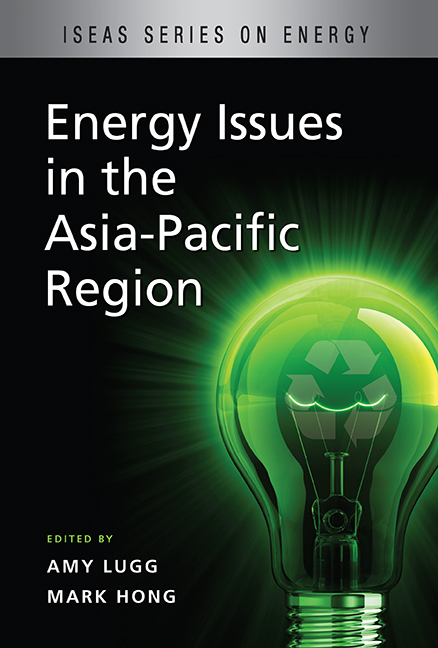Book contents
- Frontmatter
- Contents
- Foreword
- Preface
- The Editors
- The Contributors
- SOUTHEAST ASIA
- 1 The ASEAN Countries' Interest in Asian Energy Security
- 2 Biofuels Development and Prospects in the Philippines
- 3 The Biofuels Industry in Indonesia: Opportunities and Challenges
- 4 An Overview of the Cambodian Energy Sector
- INDIA
- CHINA
- UNITED STATES
- JAPAN
- ALTERNATIVE ENERGY SOLUTIONS
- Index
3 - The Biofuels Industry in Indonesia: Opportunities and Challenges
from SOUTHEAST ASIA
Published online by Cambridge University Press: 21 October 2015
- Frontmatter
- Contents
- Foreword
- Preface
- The Editors
- The Contributors
- SOUTHEAST ASIA
- 1 The ASEAN Countries' Interest in Asian Energy Security
- 2 Biofuels Development and Prospects in the Philippines
- 3 The Biofuels Industry in Indonesia: Opportunities and Challenges
- 4 An Overview of the Cambodian Energy Sector
- INDIA
- CHINA
- UNITED STATES
- JAPAN
- ALTERNATIVE ENERGY SOLUTIONS
- Index
Summary
ABSTRACT
Energy facilitates all human endeavours. It is used for heating and cooling, illumination, health, food, education, industrial production, and transportation. Energy is essential to life. The development of human society and civilization has been shaped by energy. Countries across the world have considered the sufficient production and consumption of energy to be two of their main challenges. Modern economies are energy-dependent. Energy availability and consumption are such important considerations to economies worldwide that the energy consumed per capita has become one of the key indicators of modernization and progress in any given country. The security of energy supplies has been a geostrategic issue throughout this century. At the same time, the sheer intensity of energy production and its use has begun to result in negative impacts on the environment.
INTRODUCTION
Broadly speaking, the final form of energy can be found in three types, namely, electricity, fuel, and heat. These are normally found in applications such as cooking, heating, cooling, lighting, the safe storage of food, clean water and sanitation, and in other services required by society, such as transportation, power for industry and agriculture, energy for commerce, communication, and other economic activities. The appetite for energy has often exceeded the capacity of local resources. During the twentieth century, the energy supplies of many countries were imported from distant sources. Efforts to establish influence and control over oil wells, gas fields, or oil shipping routes have generated persistent tensions and political problems. This situation has often influenced national policies in foreign affairs, economics, and science and technology. It has been a factor in influencing the political map of the world.
Since the discovery of massive, subterranean oil resources in the early 1900s, the world has consumed petroleum-based products as its main source of energy. As the engine of growth, energy has played a key role in achieving real improvements to human welfare.
- Type
- Chapter
- Information
- Energy Issues in the Asia-Pacific Region , pp. 46 - 61Publisher: ISEAS–Yusof Ishak InstitutePrint publication year: 2010



